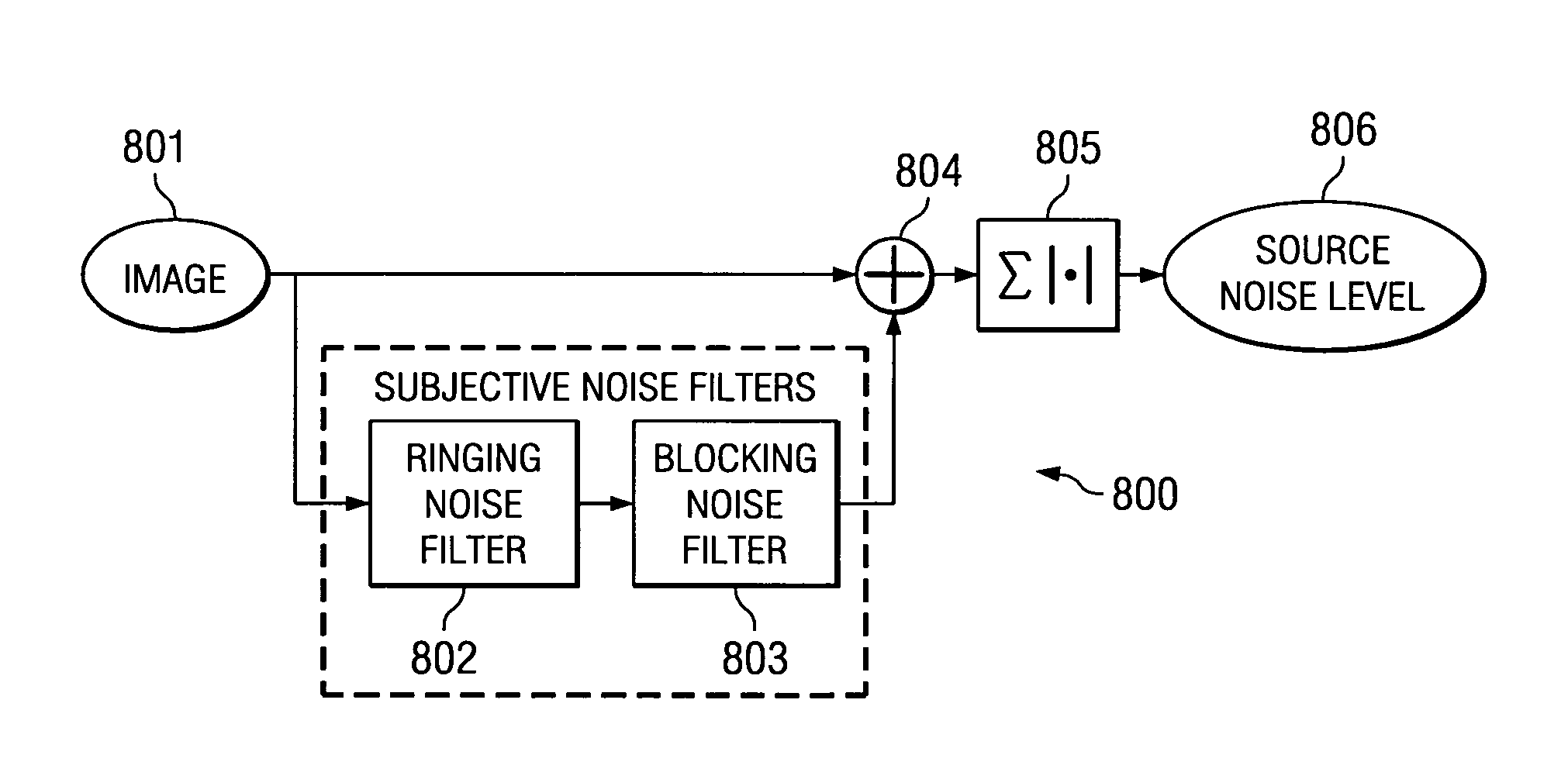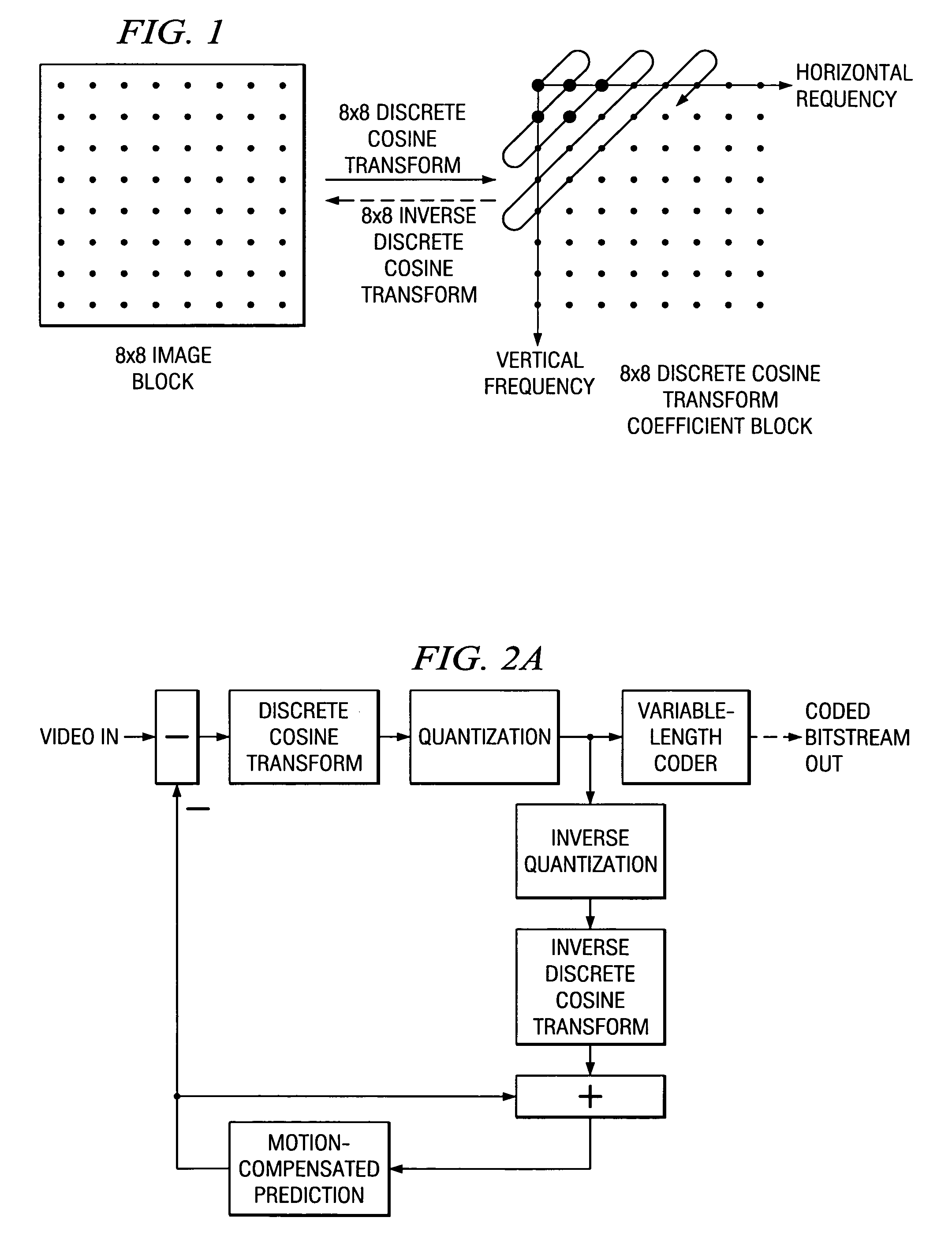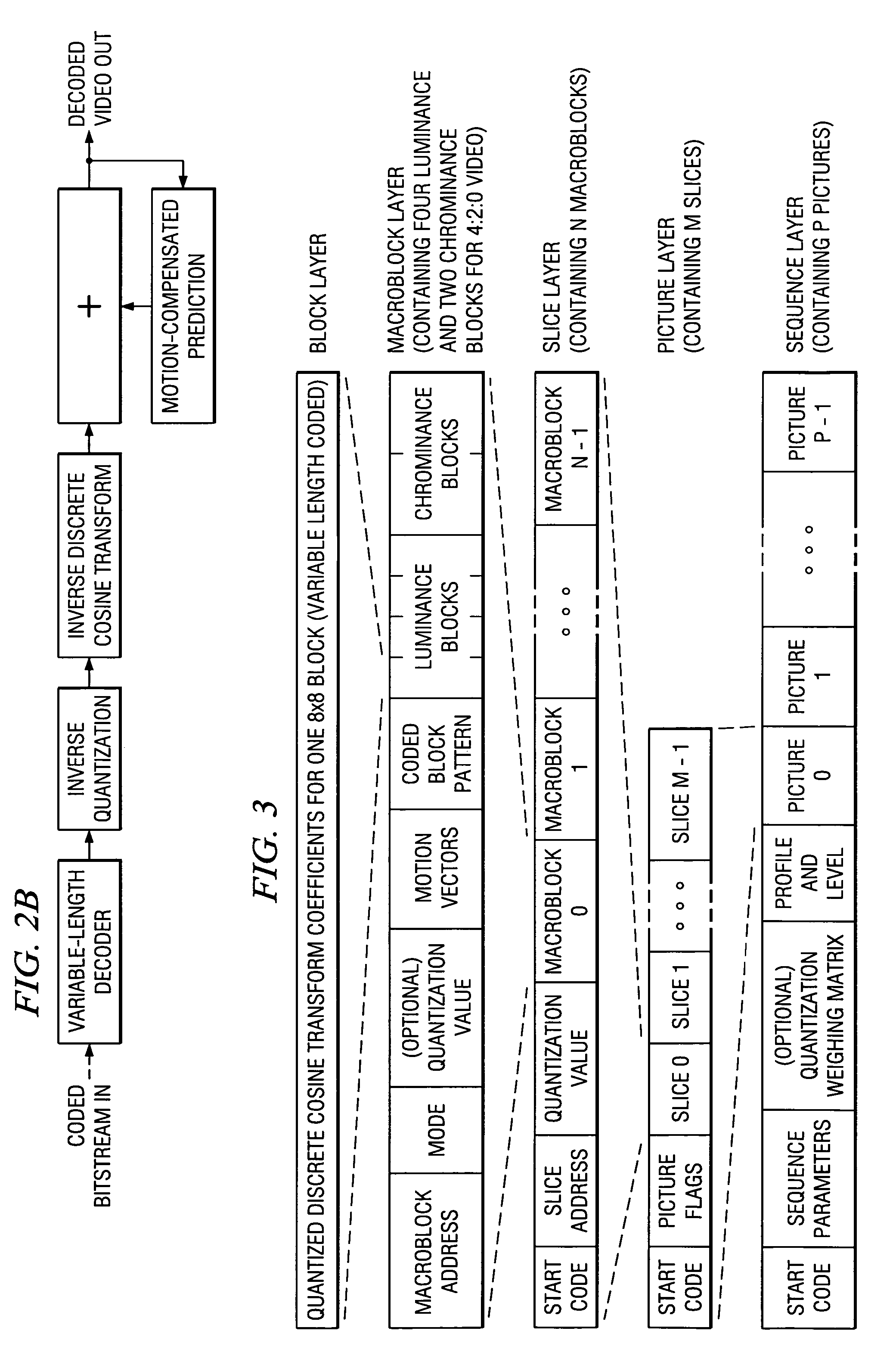Dynamic pre-filter control with subjective noise detector for video compression
a pre-filter control and subjective noise technology, applied in the field of digital video compression, can solve the problems of wasting bandwidth, and unnecessarily complex features of the standard in all decoders, and reducing the performance of the video encoder
- Summary
- Abstract
- Description
- Claims
- Application Information
AI Technical Summary
Problems solved by technology
Method used
Image
Examples
Embodiment Construction
[0025]Video compression systems operate by removing redundant information from the signal at the coder prior to transmission and re-inserting it at the decoder. A coder and decoder pair are referred to as a codec. In video signals, two distinct kinds of redundancy can be identified.
[0026]Spatial and temporal redundancy: Pixel values are not independent, but are correlated with their neighbors both within the same frame and across frames. So, to some extent, the value of a pixel is predictable given the values of neighboring pixels.
[0027]Psycho visual redundancy: The human eye has a limited response to fine spatial detail, and is less sensitive to detail near object edges or around scene changes. Consequently, some artifacts introduced into the decoded picture by the bit rate reduction process may not be visible to the human eye.
[0028]Two of the main approaches employed in MPEG codecs are intra-frame Discrete Cosine Transform (DCT) coding and motion-compensated inter-frame prediction...
PUM
 Login to View More
Login to View More Abstract
Description
Claims
Application Information
 Login to View More
Login to View More - R&D
- Intellectual Property
- Life Sciences
- Materials
- Tech Scout
- Unparalleled Data Quality
- Higher Quality Content
- 60% Fewer Hallucinations
Browse by: Latest US Patents, China's latest patents, Technical Efficacy Thesaurus, Application Domain, Technology Topic, Popular Technical Reports.
© 2025 PatSnap. All rights reserved.Legal|Privacy policy|Modern Slavery Act Transparency Statement|Sitemap|About US| Contact US: help@patsnap.com



